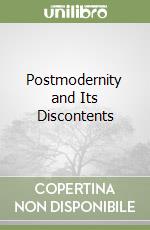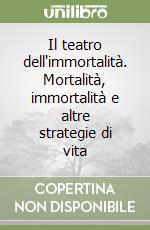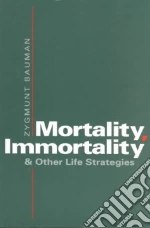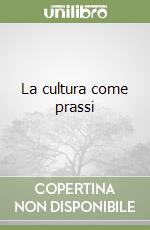 Libri di Bauman Zygmunt su Unilibro.it
)
Libri di Bauman Zygmunt su Unilibro.it
)
|
|
1997 |
 Title :
Postmodernity and Its Discontents
Title :
Postmodernity and Its DiscontentsAuthor: Bauman Zygmunt Publisher: Polity Pr € 26,20
|
|
|
1996 |
 Title :
Le sfide dell'etica
Title :
Le sfide dell'eticaAuthor: Bauman Zygmunt Publisher: Feltrinelli La perdita di una concezione unitaria del mondo ha determinato nell'etica e nella pratica contemporanee la spinta ad affrontare i problemi morali seguendo criteri diversi da quelli imposti dalla modernitÓ, dettati dalla scelta di riempire il vuoto lasciato dalla supervisione morale della Chiesa con un codice di regole razionali che gli uomini potessero apprendere e rispettare. Bauman elabora la critica a partire dall'aporia conseguente a questa scelta, definita dall'impossibilitÓ di separare e al tempo stesso conciliare l'autonomia degli individui e l'eteronomia delle persone. € 25,82
|
|
|
1995 |
 Title :
Il teatro dell'immortalitÓ. MortalitÓ, immortalitÓ e altre strategie di vita
Title :
Il teatro dell'immortalitÓ. MortalitÓ, immortalitÓ e altre strategie di vitaAuthor: Bauman Zygmunt Publisher: Il Mulino L'autore distingue nella societÓ contemporanea due diverse strtegie messe in opera dagli uomini per fronteggiare la morte. La prima, che chiama di tipo moderno, mira alla 'decostruzione della mortalitÓ'. Nella societÓ moderna non si muore, si Ŕ uccisi da qualcosa. L'attenzione si concentra sulle singole cause, contingenti, evitabili e razionalmente aggredibili. Veniamo a poco a poco addestrati a pensare non alla morte in generale, ma alle singole morti. La seconda strategia, che Bauman chiama post-moderna, consiste nella 'decostruzione dell'immortalitÓ'. In un'epoca in cui il futuro Ŕ giÓ cominciato, il domani non si distingue dall'oggi, vita e morte si confondono e appaiono happening fugaci e passeggeri. € 20,66
|
|
|
1992 |
 Title :
Mortality, Immortality and Other Life Strategies
Title :
Mortality, Immortality and Other Life StrategiesAuthor: Bauman Zygmunt Publisher: Stanford Univ Pr Zygmunt Bauman's book is a brilliant exploration, from a sociological point of view, of the 'taboo' subject in modern societies: death and dying. The book develops a new theory of the ways in which human mortality is reacted to, and dealt with, in social institutions and culture. The hypothesis explored in the book is that the necessity of human beings to live with the constant awareness of death accounts for crucial aspects of the social organization of all known societies. Two different 'life strategies' are distinguished in respect of reactions to mortality. One, 'the modern strategy,' deconstructs mortality by translating the insoluble issue of death into many specific problems of health disease which are 'soluble in principle.' The 'post-modern strategy,' is one of deconstructing immortality: life is transformed into a constant rehearsal of 'reversible death,' a substitution of 'temporary disappearance' for the irrevocable termination of life. This profound and provocative book will appeal to a wide audience. It will also be of particular interest to students and professionals in the areas of sociology, anthropology, theology, and philosophy. € 24,70
|
|
|
1987 |
 Title :
Memorie di classe. Preistoria e sopravvivenza di un concetto
Title :
Memorie di classe. Preistoria e sopravvivenza di un concettoAuthor: Bauman Zygmunt Publisher: Einaudi € 13,43
|
|
|
1976 |
 Title :
La cultura come prassi
Title :
La cultura come prassiAuthor: Bauman Zygmunt Publisher: Il Mulino € 12,91
|

|

|

|